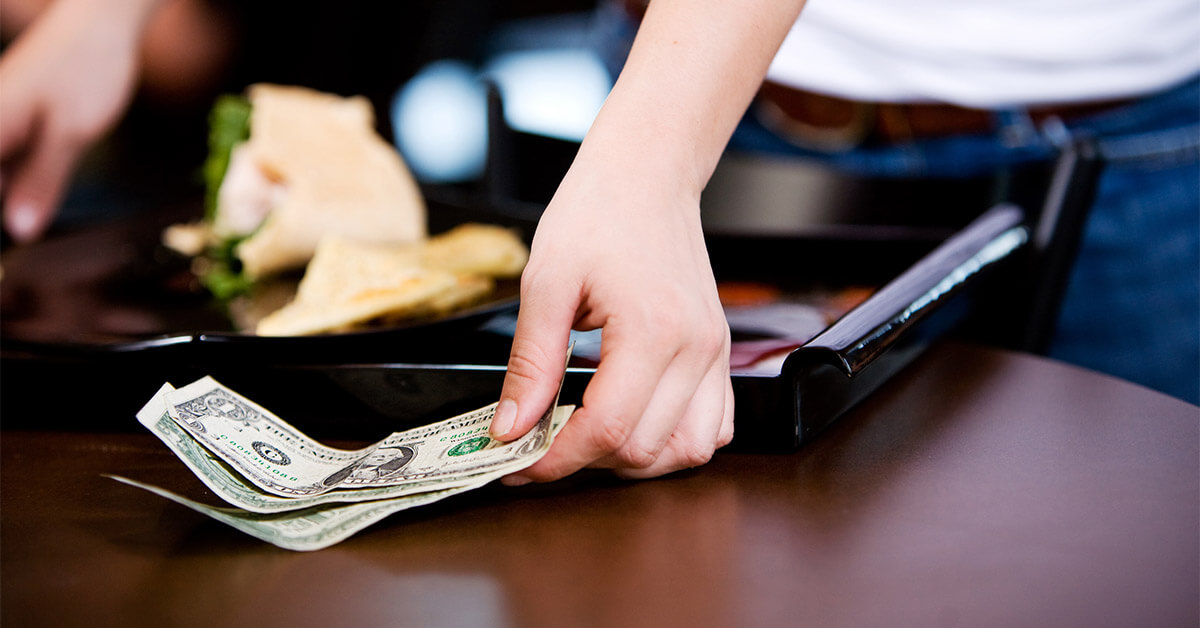
Top 8 Financial Wellness Tips for 2023
As 2022 draws to a close and we turn our thoughts to the year ahead, it’s a good time to consider what New Year’s resolutions you might want to make. For some people, these might include exercising more or eating healthier. Many people see the start of a new year as the ideal time to gain better control of their finances.
If 2023 is the year you plan to build your financial wellness, read on. In this article, we’ll share our top 8 financial wellness tips for 2023.
Read: Do you have a budget for 2023? Explore some of the most popular and effective budgeting strategies.
What is Financial Wellness?
The concept of “financial wellness” is multi-dimensional but essentially refers to your relationship with money. It covers how well you’re prepared to deal with emergencies and to what extent you have plans in place to reach your long- and short-term financial goals.
Financial wellness also relates to your attitudes and behaviors towards money. For example, do you live within your means? Do you have a budget and a savings plan, and how well do you stick to them?
Why Does Financial Wellness Matter?
Many have argued that money isn’t essential and can’t buy happiness. While that’s true, money impacts many things. It’s what pays for food, shelter, and healthcare. It pays for the necessities you need to survive and the luxuries you enjoy.
Having too little money can lead to worries that impact your health, happiness, and livelihood. Financial stress can lead to mood changes and lower productivity, impacting your relationships and work performance.
If you’ve set out to improve your financial wellness in the coming year, some key tips can help set you on the right path.
Top 8 Financial Wellness Tips
We’ve compiled our top 8 financial health tips to help you on your way to financial freedom in 2023:
1. Draw Up a Realistic Budget
Budgeting isn’t anybody’s favorite topic, but it’s an essential building block for financial freedom – and it actually isn’t all that difficult once you get started.
One easy-to-follow budgeting model is the 50/30/20 rule:
- Allocate 50% of your income to cover basic needs like food, rent, and utilities. You shouldn’t feel bad about these expenses at all as long as you aren’t living beyond your means.
- Direct 30% of your income to pay for your wants, such as entertainment, eating out, and holidays.
- Put 20% away into savings and investments.
Try to get into a habit of spending money this way, and before you know it, you’ll have developed a rhythm. If you make a mistake one month, don’t see your efforts as a failure and be tempted to give up. Financial freedom isn’t a sprint; it’s a marathon!
2. Get Smart About Saving
Ideally, your savings should be deposited into a separate account rather than into your regular checking account. Many banks and other financial institutions offer savings accounts with very low or no fees and favorable interest rates.
When money is tight, saving is often the first thing people let go of. However, avoid dipping into your savings to cover bills or day-to-day expenses, and do what you can to continue to add to your savings. Even putting away $5 a month is better than nothing.
3. Establish an Emergency Fund
Making sure you have a plan for when life throws unexpected events your way (such as medical bills, vehicle repair bills, or the loss of a job) is an essential tenet of building financial wellness. You never know when an emergency will appear, but you can prepare for them by putting extra money aside in an emergency fund.
Most experts recommend saving about three to six months of expenses in your emergency fund. Always set up a separate savings account to store this money, or it will be too easy to spend.
4. Steer Clear of Payday Loans
Payday loans are small-dollar cash advances against future earnings from your paycheck. Lenders take a signed check from the borrower, which the lender cashes on the day of the next paycheck. Alternatively, the lender can take the checking account information from the borrower for a direct withdrawal from the account on payday.
But there’s a problem. Too often, when payday comes, people can’t fully repay their loan due to other bills they need to pay, so they end up rolling over their debt. Now, the loan has a new repayment day, but the interest and fees stack up from the previous month, increasing the debt month to month. Payday lenders are renowned for charging exorbitantly high interest rates. These debt traps often become long-term problems that can be difficult to recover from.
5. Avoid Unnecessary Credit Card Debt
In December 1969, a few U.S. grocery stores started accepting credit cards. A reporter for the Journal Herald of Dayton, Ohio, interviewed shoppers at a store to see how they felt about it. “Never!” one woman told her. “That would be like paying for a dead horse – paying for something already used up.”
We’re not suggesting you get rid of all your credit cards in 2023, but this anecdote should make you pause to think about your attitude toward them. Credit cards offer a convenient way to pay for goods you need on the spot, especially if you’re low on cash. However, it’s all too easy to reach for them to pay for things you don’t really need, like expensive dinners out or the latest shiny gadget.
6. Track and Manage Your Credit Score
Keeping an eye on your credit score – especially before making any major spending decisions – is an important tip for financial wellness. The higher your credit score, the lower the perceived risk of defaulting on a loan, so you’re more likely to negotiate favorable interest rates when buying a car or taking out a mortgage. In addition, regularly checking your credit report will also ensure that you can act quickly in the event of illegal activity on your credit card or any other kind of identity theft.
Every outstanding debt you have drags down your credit score. So, make a point of paying off as much and as many as you can. Go after your accounts that charge the highest rates of interest first.
7. Ask Your Employer About On-Demand Pay
On-demand payment is exactly what it sounds like: a means for employees to access wages they’ve accrued but not yet received instead of having to wait for their next weekly or monthly payday. It’s also known as Earned Wage Access (EWA), and it’s becoming an increasingly common element of employee benefit packages. Accessing pay you’ve already earned but not yet collected avoids you maxing out your credit cards or turning to expensive payday loans if you find yourself short on cash.
Let your employer know about Payactiv’s Service so they can book a demo and get started.
8. Keep Learning
The more you know about something, the more likely you are to make more thoughtful, informed decisions. Continually educating yourself about money matters is a great way to get a handle on your finances and incrementally build financial wellness.
Here are a few ways to increase your financial literacy:
- Subscribe to financial wellness newsletters and listen to podcasts from trusted sources.
- Read personal financial wellness books.
- Follow financial experts on LinkedIn or Twitter or join a personal finance Facebook group.
- Talk to a professional about your financial situation; they’ll be able to answer your financial wellness questions, whether it’s about day-to-day money situations or more complex long-term scenarios.
Payactiv goes beyond simply offering on-demand pay. Our all-in-one Livelihood Platform takes a holistic approach to prioritizing employee financial wellness. This includes services that help address immediate financial needs and enable people to take steps toward long-term financial health, stability, and growth.
Optimize Your Financial Wellness in 2023
We trust that the tips we’ve shared empower you to make small tweaks to how you approach your finances in 2023. Remember, you don’t need to be perfect, and you don’t need to immediately correct every poor financial habit you have. But we do encourage you to devote more attention to how you think and feel about money in the year ahead.
Stay focused on your goals and reach out for help to set yourself up for greater financial wellness in 2023 and beyond.
Get Payactiv for your business
Related Articles
Key takeaways: Automated cashless tips provide a secure and efficient way to...
The heart of every business is its employees, and these employees need to be...
February is Black History Month, a time to honor the rich history, vibrant...
© 2025 Payactiv, Inc. All Rights Reserved
24 hour support: 1 (877) 937-6966 | [email protected]
* The Payactiv Visa Prepaid Card and the Payactiv Visa Payroll Card are issued by Central Bank of Kansas City, Member FDIC, pursuant to a license from Visa U.S.A. Inc. Certain fees, terms, and conditions are associated with the approval, maintenance, and use of the Card. You should consult your Cardholder Agreement and the Fee Schedule at payactiv.com/card411. If you have questions regarding the Card or such fees, terms, and conditions, you can contact us toll-free at 1-877-747-5862, 24 hours a day, 7 days a week.
** Central Bank of Kansas City does not administer, nor is liable for earned wage access.
Payactiv, Inc.
NMLS ID: 2591928
Payactiv holds earned wage access services (EWA) license number 2591928EWA with the Wisconsin Department of Financial Institutions.
Apple and the Apple logo are trademarks of Apple Inc., registered in the U.S. and other countries. App Store is a service mark of Apple Inc., registered in the U.S. and other countries.
Google Play and the Google Play logo are trademarks of Google LLC.
Galaxy Store and the Galaxy Store logo are registered trademarks of Samsung Electronics Co., Ltd.




